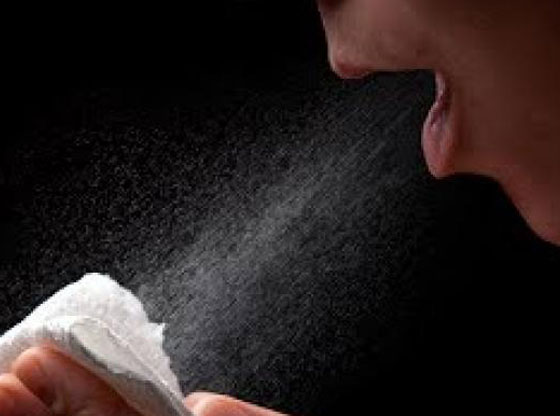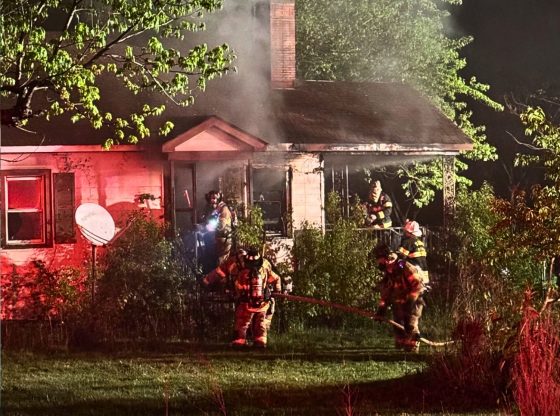Five cases of pertussis, commonly known as whooping cough, have been confirmed in Moore County as of February 4. The identified cases are all Moore County School System students attending West End Elementary School, Southern Pines Primary School, and Pinecrest High School, said Moore County Health Department Monday.
According to the Centers for Disease Control and Prevention(CDC), “Pertussis, also known as whooping cough, is a highly contagious respiratory disease. It is caused by the bacterium Bordetella pertussis. Pertussis is known for uncontrollable, violent coughing which often makes it hard to breathe. After cough fits, someone with pertussis often needs to take deep breaths, which result in a “whooping” sound. Pertussis can affect people of all ages, but can be very serious, even deadly, for babies less than a year old. The best way to protect against pertussis is by getting vaccinated.”
School and Moore County Health Department officials report that the individuals diagnosed with pertussis are being treated, per guidelines established by the State of North Carolina and the CDC and are fully cooperating in following treatment and isolation instructions.
The Moore County Health Department urges all Moore County residents to please be sure that each of your own family-household members, especially infants and young children, are up to date on their immunizations.
If you or your family members have a chronic health condition that might increase the risk of a respiratory infection, please seek advice from your health care provider whether or not precautionary antibiotics might be recommended.
Moore County School system officials and the Moore County Health Department are working closely together with school and community partners. “We appreciate the partnership with Moore County Schools. We encourage folks to contact us or their healthcare provider if they become ill and get their immunizations up-to-date,” said Robert Wittmann, Health Director.
The information below is being shared from Moore County Health Department with the public to assist in preventing the spread of pertussis.
What causes pertussis?
Pertussis, a respiratory illness commonly known as whooping cough, is a very contagious disease caused by a type of bacteria called Bordetella pertussis. These bacteria attach to the cilia (tiny, hair-like extensions) that line part of the upper respiratory system. The bacteria release toxins (poisons), which damage the cilia and cause airways to swell.
How does pertussis spread?
Pertussis is a very contagious disease only found in humans. Pertussis spreads from person to person. People with pertussis usually spread the disease to another person by coughing or sneezing or when spending a lot of time near one another where you share breathing space. Many babies who get pertussis are infected by older siblings, parents, or caregivers who might not even know they have the disease.
Infected people are most contagious up to about 2 weeks after the cough begins. Antibiotics may shorten the amount of time someone is contagious.
While pertussis vaccines are the most effective tool to prevent this disease, no vaccine is 100% effective. When pertussis circulates in the community, there is a chance that a fully vaccinated person, of any age, can catch this disease. If you have gotten the pertussis vaccine but still get sick, the infection is usually not as bad.
What are the symptoms of pertussis?
The disease usually starts with cold-like symptoms and maybe a mild cough or fever. Early symptoms can last for 1 to 2 weeks and usually include:
– Runny nose
– Low-grade fever (generally minimal throughout the course of the disease)
– Mild, occasional cough
– Apnea – a pause in breathing (in babies)
After 1 to 2 weeks and as the disease progresses, the traditional symptoms of pertussis may appear and include:
– Paroxysms (fits) of many, rapid coughs followed by a high-pitched “whoop” sound
– Vomiting (throwing up) during or after coughing fits
– Exhaustion (very tired) after coughing fits
Prevention
The best way to prevent pertussis (whooping cough) among babies, children, teens, and adults is to get vaccinated. Also, keep babies and other people at high risk for pertussis complications away from infected people. In the United States, the recommended pertussis vaccine for babies and children is called DTaP. This is a combination vaccine that helps protect against three diseases: diphtheria, tetanus and pertussis.
The Moore County Health Department urges residents to check with their primary care physician about their current immunization records, to ensure they have the recommended vaccinations.
For more information regarding pertussis, visit the Health Department website at www.moorecountync.gov/health. For Health Department news and continuous updates, follow the Health Department on Facebook (MOCO Health) or on Twitter (@mocohealth).
Contributed. Photo via CDC.


















